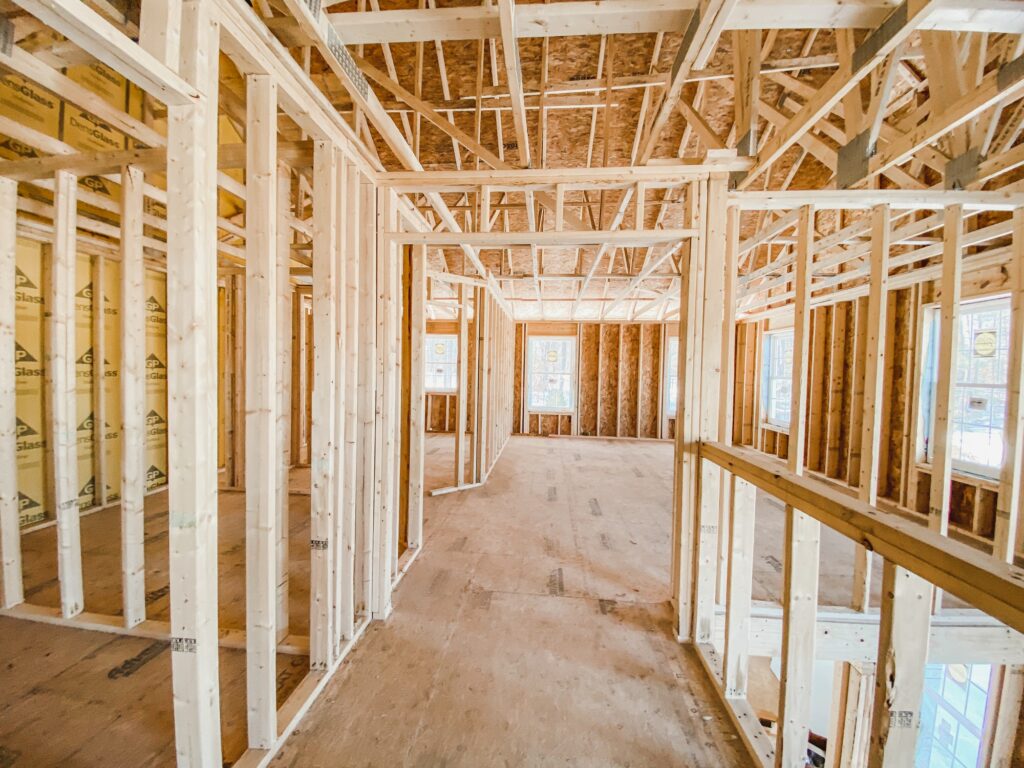With today’s housing market and low-interest rates, the price of homes in many areas has skyrocketed. So instead of competing with the other people looking for a new home, you may be thinking about building a new home. However, as you begin to shop around and make plans for this home there are a few things you need to figure out, one of the most important being how you will be financing your new home build. Some other questions you need to ask are:
- Are my credit reports up to date and accurate?
- What information is needed to apply to finance your new home?
- What am I able to afford?
- What are my loan options?
In many aspects financing your new home build is very much like getting a mortgage however there are a few key differences. Because of this, it is extremely important for you to know as much as you can when it comes to your different options.
Getting Ready for Financing Your New Home Build
Regardless of what option you choose for financing your new home build, it is important for you to prepare and get as much information as you can. This will help ensure that all of your options are laid out in front of you.
Have Your Credit Information at the Ready

Before you begin to think about financing your new home build or even go to look at houses and plots of land you have to order your credit files along with your FICO credit scores. This data will play a crucial role in determining what sort of terms your lender will be able to offer you. Any lender you go to will want to see documentation of your income, your employment, at least two years of IRS filings if you are self-employed, your bank accounts, 401K funds, and any other assets that you may have.
Determine What You Can Afford
The best way to determine what you are able to afford when it comes to financing your new home build by checking different calculators that many lenders and builders provide on their websites. However, a general rule of thumb is that you can afford a home that is two to two and a half times more than your gross annual income.
When it comes to lenders, they will often take your basic information and enter it into automated systems that use your credit scores, debt to income ratios, along with other factors in order to determine your loan size, rate, and fee.
Financing Your New Home Build: Getting to Know the Loans
Loans can come in many shapes and sizes, and not all loans will be right for you.
New Home Construction Loans
The first loan we are going to talk about is a new home construction loan. Our team at Built Right is most familiar with these loans because they are extremely useful for when you are building a new home. The majority of new home construction loans will provide you with short-term funds designed to get you through the building stage of the product.
This type of loan is typically then converted into a permanent loan of 15 to 30 years – this is called a single closing loan. Or instead of converting your single loan, some buyers will opt for a two-closing loan. This type of loan refers to buyers who take out a construction loan and then close it once the house has been completed. After that, they will then apply for a new loan for their permanent financing.

Choosing a two-closing loan for financing your new home build is more expensive because you must be approved for two loans along with two closing costs. However, it can be helpful if your construction costs go over budget.
VA Loans
When it comes to VA loans no down payment is needed, however, you must be a veteran in order to qualify. USDA rural loans are another example of loans that require no down payment, however, they come with very specific restrictions and are limited to areas with smaller populations. On top of that, both VA loans along with USDA loans have increased its insurances fees which in turn increases your monthly payments.
Conventional Loans
Financing your new home build with a conventional loan may be the best option for you if you have more the 20 percent to put down. It is important to note that conventional loans often times come with strict underwriting rules and banks can impose add on fees which in turn increase your cost.
FHA Loans
Financing your new home build with a conventional loan may be the best option for you if you have more the 20 percent to put down. It is important to note that conventional loans often times come with strict underwriting rules and banks can impose add on fees which in turn increase your cost.
Builder Financing for Your New Home Build

Many builders will have either wholly-owned mortgage subsidiaries or affiliate relationships with outside mortgage companies, and our team at Built Right is no different. This relationship allows builders to offer different financing options to qualified buyers.
Some builders also offer various affiliated title insurance along with settlement services. Typically choosing this option for financing your new home build will reduce the time that is needed to process the application because the entire loan process is handled by the builder.
This type of financing can also give you a slight edge when it comes to receiving your financing application. While also saving you money on the combined cost of the house, mortgage, and closing.
This type of financing can also give you a slight edge when it comes to receiving your financing application. While also saving you money on the combined cost of the house, mortgage, and closing.
Setting Yourself Up for Success During the Construction of Your New Home
Making the decision to build a new home is exciting, but it can also be extremely daunting especially when trying to determine which financing option will be best for you. Our team at Built Right Homes works with a team of professional loan advisors who can help you make educated decisions for your loan options. Follow this link to get pre-approved and learn more about your loan options today!

